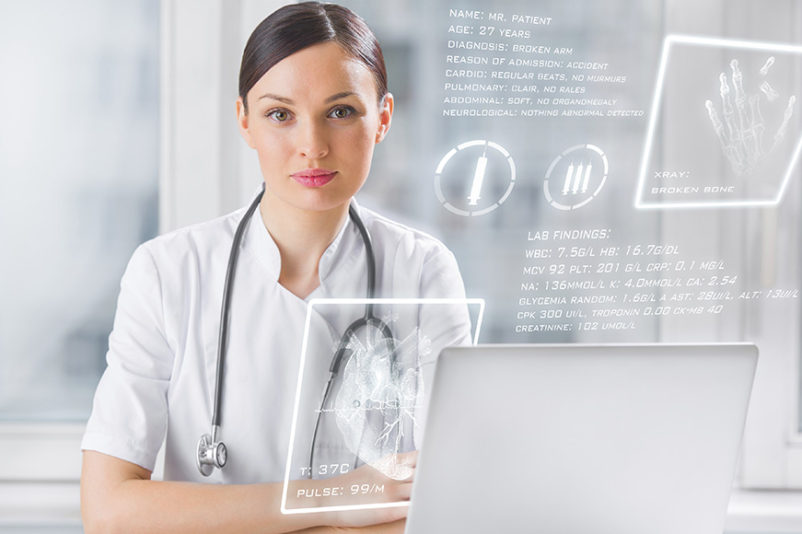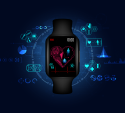Digital Health or How Technologies Redefine Healthcare

Digital health technology is poised to redefine healthcare and clinical research. From wearable technologies, through cloud services and electronic data capture, to remote monitoring, the digitalization of healthcare has already begun. In many ways it revolutionizes the industry by replacing “stone-age tools” (like paper-based data capture) with much more consolidated contemporary systems (such as CTMS). Unsurprisingly, the adoption of these tech-oriented methodologies gradually results in “digital health”. What’s interesting here though is that the industry doesn’t really seem to mind such revolution. In fact, it welcomes it and embraces it all. It simply couldn’t have been any different. In order this particular sector to start developing at faster and more productive rates, there is a need of faster and more productive techniques in the first place. Are they achievable? Yes. How can they be achieved? By taking advantage of the opportunities that the technological world has to offer.
In what ways does digital health technology complement and enhance healthcare?
Back in 2009, the Health Information Technology for Economic and Clinical Health Act (HITECH Act), authorised incentives, aiming to increase the implementation of electronic health records (EHRs) by 2013. The use of any type of EHR system by office-based physicians increased to 78% in 2013 in the United States. As a comparison, the UK is marked as the number one market in Europe that shows most impressive figures in relation to the adoption of EHRs. Hence, it became clear that by the end of 2015, about $2.1bn was expected to be spent on technologies in healthcare, with a 4.1% annual growth to come next. But what’s even more impressive is that the NHS has serious intentions to make the paperless future in healthcare a reality by 2018.
Still, healthcare and pre-drug development practices in particular face numerous challenges on a daily basis. Experts in the field often battle prolonged, complex and expensive processes. Sometimes even the uncertainty regarding whether or not a medicinal product will actually reach the market becomes the reason for discouragement or, what’s even worse, termination of the whole process. Then there are even more internal difficulties. They include: adequate processing, reviewing and visualizing large volumes of statistical and medical data; not having the right tools or mechanisms for monitoring clinical trials; ensuring patience safety and preservation of personal information and many more. But it is the moment when difficulties arise that technologies shine the brightest, for they are the means through which such difficulties can be wiped out. In this regard, different IT companies across the world embark on innovative projects in order to improve clinical practices, give a start to a completely digital healthcare and facilitate the work of research experts.

BGO Software, for example, built HARP – a compound web solution for ethical reviews of clinical research projects. The system enables the personnel involved in a clinical trial to follow every application review process, conduct post-approval monitoring and prepare comprehensive reports. Since data management is one of the most time-consuming and costly aspects in clinical studies, BGO Software’s solution proves once again that technologies make things easier. With HARP, the migration of voluminous data can be done without difficulty. Currently it is used by more than 500 research ethics committees across the United Kingdom.
Another proof of the impactful presence of technology in healthcare is the number of advancements in terms of learning. Many Learning Management Systems (LMS) make the systematization and the conduct of clinical study courses more simplified and interactive to both instructors and students. In attempt to optimize the services offered by Astra Nova, the experts at BGO Software developed one such system. Since the UK-based company provides training solutions for the Pharmaceutical and Clinical Research industry, the LMS is tailored specifically to the expectations and requirements of their clients. Typically, it enables training leaders to make better presentations, work with reporting analytics, deliver clearer and more understandable content, observe students involvement, track their progress and assess the performance of participants. Participants, on the other hand, (be that medical students, pharmacists, sponsors and others) can benefit from quick access to thousands of learning programs, social groups, online and video conferences and more.
Becoming certified in Good Clinical Practice is the first step for new industry experts.
Improve your qualification here!
But it’s not just particular developments and ready-to-go projects that lead to digital healthcare. Events have that convincing power too. Massachusetts Institute for Technology, for instance, has even begun arranging healthcare-themed hackathon events. They engage computer programmers in collaborative activities and tasks in order to find more productive ways for solving global health issues and improve the Clinical and Pharmaceutical sector.
These are just some of the many ways which show that Industry leaders across hospitals and other private or governmental institutions witness fundamental shifts in terms of how care is being provided. To say that technology modernizes healthcare is scarcely enough to acknowledge the actual impact it has on healthcare companies. Especially when a number of tech-focused trends continue to come to the surface as time goes by.
The era of digitalization

Several decades after IT companies and healthcare institutions had begun to merge their practices, a new infrastructure was certainly created. While the present era of digitalization allows for the use of fresh and never-executed-before operating models, newcomers, start-ups, pioneers and already well-acclaimed organizations hardly waste any time. Instead, what we observe now is an escalating rush by healthcare service providers and clients towards the advantages being offered. After all, when someone is given a lottery ticket, he or she doesn’t throw it away without trying. On the contrary. They take their chances and hope that the best is yet to come. Same goes for IT and healthcare sectors. We have two giants on each side that shorten the distance between them with every single day. The contact point where the technological mind meets the scientific is, in fact, the moment when the exciting potential for digital healthcare becomes a reality. Thus, the array of technological prospects that can ostensibly alter the healthcare environment on a global level varies. However, the most important thing is that the overall healthcare ecosystem transforms into a digital healthcare ecosystem. It relies on technological developments, it functions with the help of technological developments and it is improved by technological developments.
At last, if you are looking to invest in a clinical trial management system, Clinicubes CTMS is the one of the best software solutions on the market. The system increases the productivity of the clinical research sites and the number of successfully completed trials. It also streamlines the entire clinical trial process, making the CTMS implementation an easily attainable goal. We will provide you with substantial live Clinicubes CTMS demonstration, where we can discuss the entire list of questions that you have.
Get in touch and take advantage of what our clinical trial management system offers.
This article was first and originally published here: BGO Software Blog




